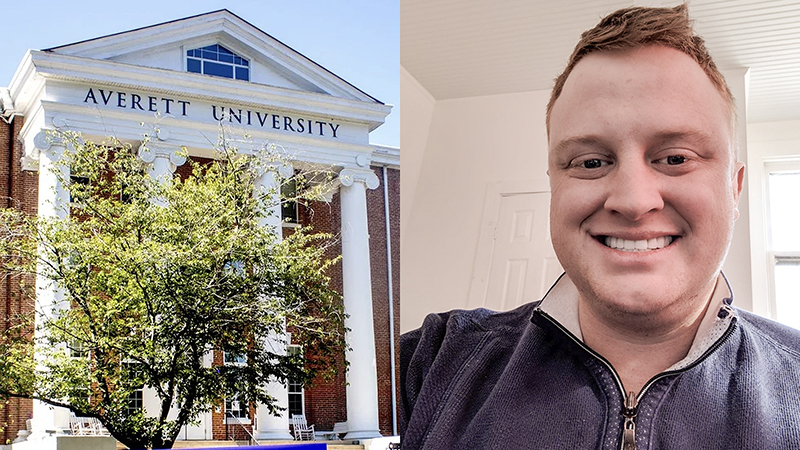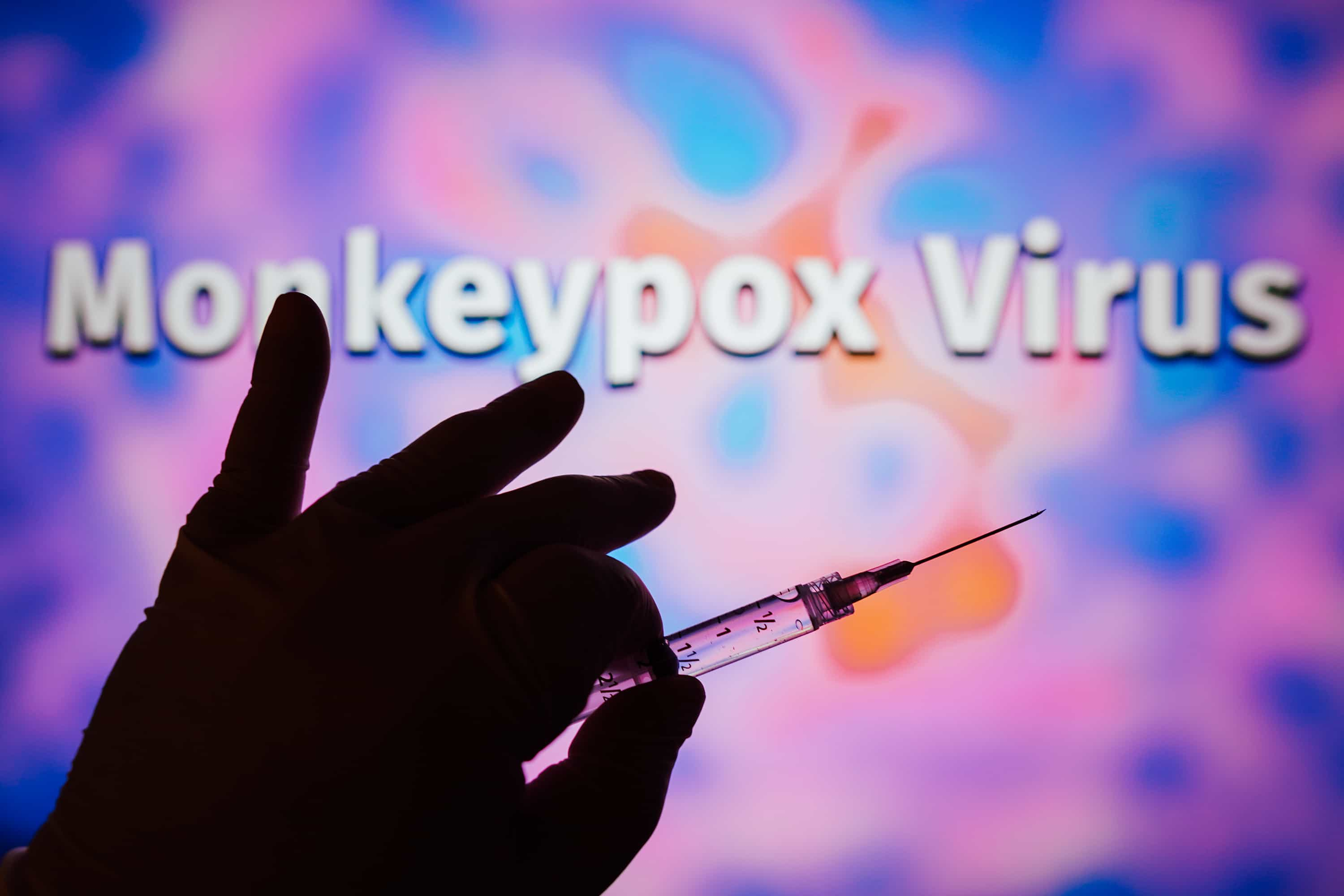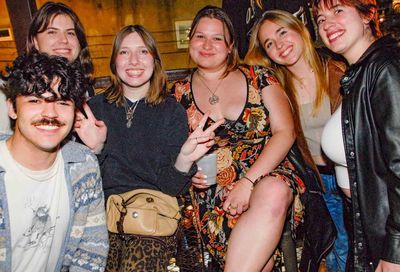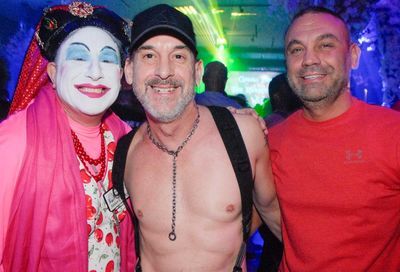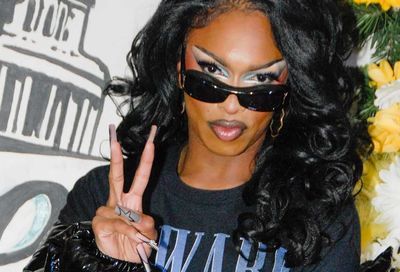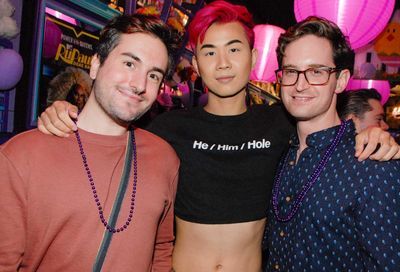At Home in the Old Dominion
Virginia's first gay state legislator Adam Ebbin
There comes a moment when you realize you’re doing something right.
For Virginia State Del. Adam Ebbin (D), the moment came near the end of one of the legislature’s most anti-gay session ever, when a young page approached him to say she appreciated his speaking at the upcoming ”Passing the Torch” dinner.
”I didn’t think anything of it at the time,” he says, as his speaking engagements often rapidly fill his schedule. But a few weeks later, while speaking to the Gay, Lesbian and Straight Education Network dinner — the ”Passing the Torch” event — he made the connection.
”I realized that I had helped give hope to a lesbian high school student, who sat there and heard all this legislative anti-gay vitriol during the session,” Ebbin says. ”That just made me feel incredible, because I wish I had heard that when I was in high school.”
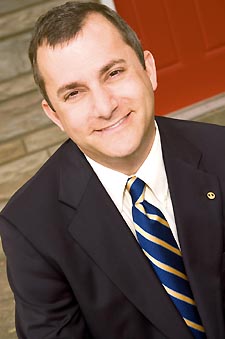 Adam Ebbin |
Ebbin’s path to that moment started in 2003, when he became the first openly gay state legislator to be elected in Virginia, representing the 49th District, which includes parts of Alexandria, Arlington, Falls Church and Fairfax County. But that election wasn’t won out of the blue — Ebbin had spent more than a decade working in Virginia politics, including the campaigns of local groundbreaking gay elected officials such as Arlington’s Jay Fisette and Alexandria’s Paul Smedberg. Not to mention founding one of the area’s mainstay gay and lesbian political groups.
Of course, you can reach back even further into Ebbin’s past to find the seed activism that would set his political course.
”When I was a kid, I used to read all those Making of the President books,” he laughs, remembering his appearance in eighth grade wearing a Ford for President button. ”You usually don’t wear Ford for President pins in eighth grade. It’s kind of a geeky thing.”
While his party affiliation has changed — for the better, he would note — the drive to active participation remains. And given the challenges facing gay and lesbian Virginians, in particular, that’s a good thing to have on hand. While some of the worst of the anti-gay legislation was deflected in the last session, more is always on the way. The proposed state constitutional amendment banning same-sex marriage (and likely all partnership arrangements) is approaching a crucial next step in its possible approval.
It’s not an easy time to be the gay legislator in Richmond. But that’s why it’s the most important time.
METRO WEEKLY: When you first decided to run for office, what role did being gay actually play in your campaign?
ADAM EBBIN: In the primary [election] it was a positive role, because [my district] is the most diverse district in the state. Any tip in the electorate in what is usually a low turnout election [is important], so the question is ”What constituencies can you appeal to?” If you have an extra reason that sets you apart, that’s good. But it was important to me for the voters, particularly the voters who are gay, not to think of me only as the gay guy. I had a few things that set me apart. For instance, I was able to work in Richmond, having been Gov. [Mark] Warner’s Chief Deputy Commissioner for the Virginia Department of Labor and Industry.
But the gay thing — I’d co-founded the Virginia Partisans Gay/Lesbian Democratic Club in 1992 and I formed a political action committee for the club. So I got to know a lot of the people who were among the most active gay Democrats in the state. I was Jay Fisette’s campaign manager when he won his first primary [for Arlington County Board], and Paul Smedberg’s campaign manager for the first time when he won a primary [for the Alexandria City Council]. So I had a big Rolodex of gay people.
My being gay was a galvanizing factor for some of my donors and, of course, it helped me win the endorsement of the Gay and Lesbian Victory Fund. When you win a 5-way primary by more than 43 votes, everything you do is brilliant. If you lose by 43 votes, of course, you made some awful mistakes. I was openly gay and it’s a very progressive district. There were lots of people who weren’t gay who liked the idea of seeing a gay representative. In fact, there were some folks who thought it was very important that the representative should be Latino. There were two Latinos and two openly gay people running, and one straight white guy. He’s a great guy, a very progressive good guy. But he didn’t have a niche. He didn’t have something that set him apart. When you market yourself to receive the most votes, having a niche certainly helps. Fortunately, I wasn’t limited to just being a gay guy.
It’s a very diverse district and what I like about it is that I don’t think that anyone is really the majority. Whoever is going to represent a district always has to reach out to all segments. In terms of the voters, it’s a little bit different because some of the Latinos are newer immigrants and may not yet be full citizens or be registered to vote in as big a number as we would like. So in terms of the registered voters, it’s not quite as diverse, but it’s still a very diverse district. It’s the most Democratic district in Northern Virginia. It’s the most Democratic district in the state of Virginia that is not a majority black population.
MW: And you have a lot of gay households, as well?
EBBIN: We’ve got a lot. I went campaigning door-to-door in the primaries. Now, in a primary election where there’s going to be a low turnout, you only have so much time for that. So we went through the voter rolls and every household that had two persons of the same gender with a different last name within 10 years of age of each other, we targeted, assuming there was a good likelihood they were gay. We didn’t send them mail that said ”You’re the gay voter!” but there were lots of them.
MW: Does an off-year election cycle hurt candidates in Virginia because people don’t pay as much attention as they do in election years with presidential and other campaigns?
EBBIN: It really depends on the district. In Virginia there’s an election every year because every odd year we have a House of Delegates election and during every fourth odd year you get Governor and the statewide offices as well. In some ways it makes it easier because if you’re going to mail to every household that’s likely to vote in your election, it’s a much smaller universe. But that also means that participation is less and it’s better for democracy when participation is higher. But it really depends. The lower the turnout sometimes benefits Republicans in general because Republican core voters tend to turn out a little bit more. But does it hurt the candidates or make it harder? Well, we’re used to it. It depends on the candidate and where you’re running.
MW: What was your primary like this year?
EBBIN: No one ran against me in the primary. That was due to some really helpful generous people who, after I got elected, unified around me and were happy with the job I was doing. Gov. Warner agreed to do a big event for me last August that was a huge success — a lot of the people who might have considered running against me could see that I had the full support of not only my colleagues and some of the different ethnic communities — or significant support from them — but that I also would be extremely well funded. It’s difficult to run against an incumbent without a reason to fire them. I think that I’ve been successful in that I have not given people a reason to fire me from this job and I’ve also given them good reasons to rehire me.
MW: Let’s talk about your background. Where did you grow up?
EBBIN: I was born in New York on Long Island. In fact, I went to high school with a guy who is now an openly gay state legislator in New York — Danny O’Donnell, Rosie O’Donnell’s brother. It’s a pretty suburban, vanilla place. It’s not that diverse, but it was mixed between Jews, Irish and Italian. I got a good education, and it’s not too far from Fire Island, where my family used to go for the summer.
MW: Were you raised with a political viewpoint?
EBBIN: I remember being in kindergarten on election day in 1968. We were gathered around the flagpole and the teacher said, ”Today is a presidential election. Do you all know what that means?” And the kids started saying ”Nixon” and I said, ”No, Humphrey.” Because that’s what I heard from my mother, I guess. My mom’s a good liberal, progressive Democrat. My father was a Republican, but later in life, I think, saw the light before he died. I learned later that I was living in one of the most Democratic precincts in my township but when I got into eighth grade, a county legislator knocked on the door who was a registered Conservative — not a Republican but a Conservative, which is a step to the right in New York. He had put a needed traffic light in around the corner, so I asked my mom and dad and I started working for [him]. This guy eventually ran for Congress. I went to a debate and listened to him and I didn’t agree with the things he stood for on certain issues, choice and other things. So two years later I worked for a moderate Republican in the primary against him and eventually I started volunteering for Democrats. I got to see grassroots politics door to door.
MW: So you got lot of experience when you were young with grassroots organizing, making contacts, and seeing how the process works. Is getting involved at that level the way the community will see more gays and lesbians actually getting elected? As opposed to the gay person who suddenly decides, ”I want to get elected.”
EBBIN: Yeah, that person won’t win. That’s one of the things the Victory Fund teaches candidates in their training. Elections are littered with the road kill of candidates who decide that they ought to be in office without having a lot of prior community and political involvement. And nothing can take the place of making connections in your community through civic involvement, becoming streetwise through political involvement, and seeing what can work or the way it’s done. When I was in college, I worked for Gary Hart when he was running for president. I remember it was the last day in September, 1983 that we went up to New Hampshire for the first time. We drove to Burlington and we knocked on doors. And I learned that if you knock on 40,000 doors and send 40,000 hand-written thankyou notes with 40,000 issue papers and you have a candidate with a great message and a niche, you can in fact win and confound the skeptics. But that doesn’t just happen. Every time someone just drops in from the military or business, it’s not quite that easy.
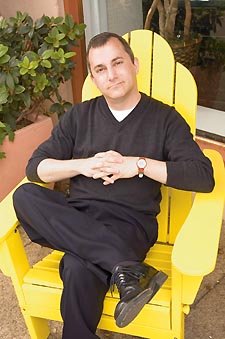 |
MW: Your first term in office turned out to be one of the most anti-gay terms ever in the Virginia Legislature. What was it like serving as a gay man in the middle of that legislative hostility?
EBBIN: You get a knot in your stomach when you see some of the votes and you’re losing them. A lot of gay and straight people say to me, ”How can you stand to be down there? It must be awful.” I love being there. I love knowing that if someone is going to spread some anti-gay vitriol I can grab the microphone and say, ”Mr. Speaker, Mr. Speaker” and speak and be recognized. I can ask them to speak the truth or to understand the truth.
MW: Does that level of vitriol extend to both public and personal relations between elected officials?
EBBIN: There is a range of conservatives members of both the House and the Senate. On a personal level they vary as well. I understand that Richmond used to be much more collegial. But there are only three or four members of the House who I would rather not get in an elevator with. And, in fact, when I need to get to another floor, I’ll just get in the elevator anyway.
There are people who voted anti-gay who have come up to me afterwards and told me that they’re sorry their district won’t allow them to vote otherwise. While gay issues may be very important to me, some people unfortunately are quite willing to sell out their principles in order to further their career. But while it’s disturbing to see how easily some folks will casually disregard our lives, there are lots of people who I enjoy talking with. You have to make unlikely allies if you’re going to succeed as a Democrat in the minority of Richmond. On a long-term basis, just getting to know and work with people, sometimes you agree and sometimes you don’t. It’s painful when you see them doing what you consider destructive and dividing Virginians for political gains. But there’s always that next vote. And there are some people who vote anti-gay on some things whom I’ve gotten to speak for issues that would be considered pro-gay. And when you win one of those by one vote and you feel like you got that one person to help you, it’s very rewarding.
[But] the tone in Richmond has gotten much sharper. The divisions have gotten much sharper than they’ve been in past years. But only having been there for two years, I don’t know any better. It’s kind of like you go in as a freshman and these awful things are happening, but you’re looking up at this capitol and seeing that Patrick Henry used to be a member of this body, or you think of Thomas Jefferson for a little while — that gives you some solace. Unless you think about what they’re doing to Jefferson’s words.
MW: The anti-gay stuff has gotten pretty aggressive over the past couple of years in the state. Why do you think Virginia is moving so aggressively that way, especially compared to other states in the mid-Atlantic area?
EBBIN: For one thing, you’ve got Pat Robertson. You have a very active right wing lobby that does a good job of networking throughout the state. The other thing is that because Virginia elections are always happening, there are people who are always looking to make a name for themselves and to prove how conservative they are. Particularly after our re-districting in 2001, in most cases Republicans don’t have to ever worry about losing a general election in their districts. They do have to worry about losing a Republican primary. A moderate incumbent, and there are fewer of them left, has to worry about facing challenges from the far right. I had one delegate tell me at the last session that he was already going to face a primary challenge from the fiscal side because he voted for the tax and budget reform and he couldn’t afford to give the religious right a reason to get involved as well.
MW: Do you see Virginia’s gay and lesbian political infrastructure growing?
EBBIN: It’s great. The wake-up call is great. I know it reminds me back when I was President of the Virginia Partisans Gay and Lesbian Club in 1994 and the Republicans nominated Oliver North for the U.S. Senate. I told the rest of my board members that this is the best fundraiser and club-building thing you will ever have. And it was.
We are a minority in Virginia. Anyone in Virginia who is not either a member of Equality Virginia or Virginia Partisans or Log Cabin Club, their silence is hurting them. Even if they can’t be out at work and to their families — which I hope everyone will be, eventually — I can’t overstate the impact of individual people taking action that can take them less than two hours a year. If people write to their legislators, particularly in these coming weeks before the legislative session, telling them that they’re concerned about the increasing trend in Virginia of legislative targeting of gay people, legislators respect and listen to those letters. Those polite letters. And when we get people all over the state writing to their legislators like that, it helps turn the tide.
People should know that their delegates are in their communities more than 10 months a year. Don’t wait until a bad bill passes in February and write to them the day after, or even the day before, they vote. They should take the time this fall to write a note after the election to their legislator saying ”I would like to take you to coffee. I’d like to have a bagel with you.” And bring three of their friends with them. And if they don’t know what to say or ask about they should ask Equality Virginia [for information].
And when people go to vote, tell the Republican poll watcher who offers a sample ballot very politely, ”I’m sorry, I can’t vote for your candidate because they don’t value me as a gay citizen.” And tell the Democrat ”The main reason I’m here to vote for you, is because your candidate seems to be okay on gay issues.” You need to buck up the pro-gay people and make the anti-gay people know there’s a price. If you can do it with civility, all the better.
MW: Is civility a problem sometimes?
EBBIN: The one thing my mother used to tell me that I always hated was that you catch more flies with honey than vinegar. But if you find a legislator who is anti-gay and you like something about them, once they’re already elected send them a note and complement them for that one thing. Because when you have that meeting with him, it’s such a great ice breaker to say ”I do agree with you about development, or the environment, or taxes, but you are doing this other work that I think we need to discuss and find out how you see me and my community.”
MW: A lot of the opposition to gay and lesbian issues comes from the Republicans. Does that mean that Virginians have to be willing to vote Republican at some point in order to offer a carrot as well as a stick?
EBBIN: They don’t have to. It’s a secret ballot. I don’t think you have to compromise at the polling places. You don’t have to vote for anyone you’re not comfortable voting for, but once they’re elected it’s their job to represent you. If you can make their job a little bit pleasant, then they’ll maybe listen a little bit better.
MW: How is it being a gay guy in Virginia?
EBBIN: When I first moved to Alexandria from Takoma Park, I thought that I would need a pick-up truck, chew tobacco and a shotgun. [Laughs.] The reason I first moved to Virginia was that an old college roommate of mine and his wife told me about a condo that I could buy for $60,000 in Alexandria, and I thought ”Wow, that’s not much more than a Mercedes. I’d love to own my own place.” When I moved there I was kind of skeptical, then saw that Alexandria and Arlington are as tolerant in most cases as any neighborhood in D.C.
What I like is that it’s more integrated with gay people. There are gay people everywhere in Virginia and I like that mix. I found Alexandria to be a very welcoming and warm place and I found that the Democratic political establishment, particularly in Alexandria, Arlington, Fairfax and Falls Church, want to include gay people.
MW: Do you think the suburbs are really the next big growth place for gay and lesbians?
EBBIN: Absolutely. Gay people want the same things everyone else wants. Maybe more affordable housing or a back yard, and if they have kids they want to be in certain school districts. What’s hard to know is how much of [what you see] is gay people moving to the suburbs versus the gay people already there willing to be more visible in the suburbs.
MW: When you look back at your first term as delegate, what do you point to and say, ”That’s why I ran for office. That’s why I wanted to be a delegate?”
EBBIN: There are a few things, but personally it was being able to stand up for what’s right for gay people, for immigrants, for women, for underdogs and minorities. That is really fulfilling. To be able to figure out how I can work with the system to the advantage of the people who I represent, whether it’s getting a public defender service for Arlington County funded or getting expanded adult protective statutes for seniors and disabled adults in Virginia. That’s fulfilling, because that means something has been done.
And there are small things I’m happy I can do, like when I get a letter from a prisoner who tells me that the Virginia State Prison publication review committee won’t let him receive the Advocate, although straight inmates can receive Playboy. I can deal with the prison and get that prisoner the Advocate. I feel like that’s a small measure of justice. When I have influence with different cable television companies and I feel that I’m able to nudge them towards including [new gay and lesbian networks], just as other parts of the community are represented through cable TV. Those are some of the things that are fulfilling.
And to be able to challenge some of the immigrant bashing. I really enjoyed being able to challenge someone who wanted to remove immigrants from the Worker’s Compensation system and said that we shouldn’t reward them for [being undocumented] — to tell her that getting a death benefit of a few hundred dollars to ship your body home in a box after your employer had you engaged in very hazardous work against the rules was not a ”benefit.”
MW: You are in a district with a lot of immigrants, including Latinos and Asians. Do you feel an increasing hostility against immigrants in the state?
EBBIN: Absolutely. Immigrants are the new gays in terms of bashing in Virginia. And they say ”Illegal, illegal, illegal” but they don’t take the time to know how people become undocumented when they come into [the country] legally and the federal government takes three to seven years to process their applications. I’m going to introduce a comprehensive statute to outlaw human trafficking in Virginia. Human trafficking is basically modern day slavery, coercing or enticing someone to perform work that you either don’t pay or underpay them for while holding power over them by holding their papers, threatening to blackmail them, threatening their family in the old country.
MW: On the upcoming second reading of the state constitutional amendment to ban same-sex marriage, how do you feel: optimistic or pessimistic?
EBBIN: I’m hopeful that we’ll be able to point out why the effort to amend the Virginia Bill of Rights and the State Constitution, why it is overly broad and why we don’t need to outlaw gay marriage for a fourth time in Virginia. I’m hopeful that we’ll be able to get through to people that if they insist on having an amendment in the State Constitution to limit marriage to a man or woman that it should be reworded. Right now it’s way too broad. It was sloppily written, they took far too little time to consider it. So I’m hopeful that we’ll get that message through. We will see.
MW: What’s the number one thing people should be looking at on the political horizon?
EBBIN: Well, there’s an election on Nov. 8. If you’re gay or lesbian and don’t vote, you’re asking for more of the same. You should vote and you should also make it known to your representative after the election what you care about. Take 10 minutes to send a hand written letter. If you can’t send a letter send an e-mail. If you can’t send an e-mail make a phone call. Speak up, politely.
I’m running unopposed. I have formed a PAC, the Virginia Progress Fund, to help other progressive candidates. I have already donated more than $10,000 from my fund to people I feel can make a difference in Virginia. That includes Vivian Page, who is a Democratic nominee for Treasurer of Norfolk who will be our first African-American and openly lesbian elected official in Virginia. Sometimes people wonder why I’m raising money when I’m unopposed –I’m using the money I raised to make a difference in this election and also to make sure that my constituents in general know what I’ve done for the full range of my constituency.
For information on the Virginia Progress Fund and Adam Ebbin, visit www.adamebbin.com, or mail to P.O. Box 41870, Arlington, Va. 22204.
Support Metro Weekly’s Journalism
These are challenging times for news organizations. And yet it’s crucial we stay active and provide vital resources and information to both our local readers and the world. So won’t you please take a moment and consider supporting Metro Weekly with a membership? For as little as $5 a month, you can help ensure Metro Weekly magazine and MetroWeekly.com remain free, viable resources as we provide the best, most diverse, culturally-resonant LGBTQ coverage in both the D.C. region and around the world. Memberships come with exclusive perks and discounts, your own personal digital delivery of each week’s magazine (and an archive), access to our Member's Lounge when it launches this fall, and exclusive members-only items like Metro Weekly Membership Mugs and Tote Bags! Check out all our membership levels here and please join us today!




